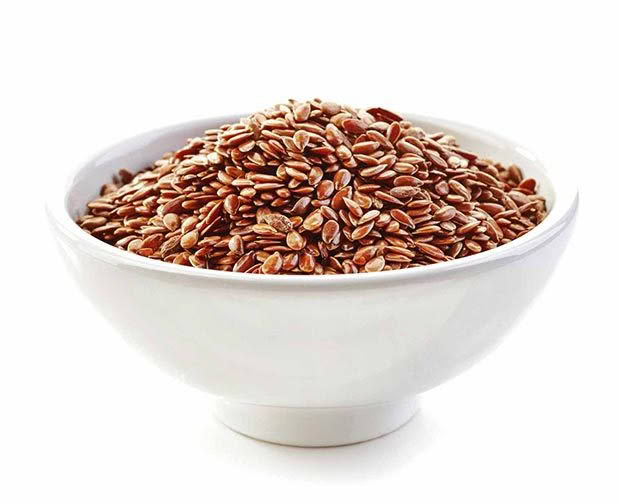Dr Libby: post-natal health

Some of the physical and emotional consequences of giving birth can be felt for up to 10 years afterwards. These are Dr Libby’s tips for combating tiredness and focusing on your wellness.
Words: Dr Libby
The term post-natal depletion was coined by the family practitioner Dr Oscar Serrallach, who worked in rural Australia. According to Dr Serrallach, if you’ve had a child within the past decade you might still be suffering some consequences — lethargy, memory disturbances and low energy among them. And it’s not just because being a parent is hard. Physically, the process of growing a baby exacts a significant toll and this is not discussed enough.
It can be physically and emotionally challenging to get back on your feet after a baby arrives, a situation made more difficult if there are additional young ones at home and if the mother is not well supported. Studies suggest (sorry about this) that, on average, a mother’s brain shrinks approximately five per cent in the prenatal period as it supports the growth of the baby. (The brain supplies the fat that is required for the child’s development.) Part of the actual brain shrinkage is also to do with the physical and emotional rewiring that occurs to equip women for motherhood. It supports the creation of a “baby radar”, where mothers become intuitively aware of their child’s needs, whether he or she is cold or hungry, or is crying at night. We simply cannot fight our biology.

However, this hyper-vigilance can become dangerous for the mother if she isn’t supported. While plenty of prenatal support is available, as soon as a baby is born he or she gets the focus. There is often very little on the mother, who can feel like she has disappeared into the shadow of her new role – a transition that can be especially difficult if she had a working role where she felt highly capable. This new hyper-vigilance is obviously vital for the child’s survival but if the mother is living in an unsupportive household or society, it can lead to sleep problems, self-doubt, insecurity, feelings of unworthiness and a dangerous level of fatigue. Hormonally, nutritionally and emotionally, things can take time to restore and rebalance. Note, too, that many mums-to-be are already depleted leading up to conception and pregnancy. Nature’s design is that the developing fetus will take all that it requires from the mother.
THE SYMPTOMS OF POST-NATAL DEPLETION
Dr Serrallach describes post-natal depletion as fatigue and exhaustion combined with a feeling of ongoing “baby brain”, a term that encompasses poor concentration, poor memory and emotional lability. Emotional lability is where emotions fluctuate much more easily than usual. Crying for no reason is a symptom as are feelings of isolation, vulnerability and of not being “good enough”.

SLEEP DEPRIVATION
The sleep deprivation that comes with having a newborn can itself be depleting. Research suggests that in the first year the average sleep debt is about 700 hours. If you are up breast feeding through the night or attending to little ones, I encourage you to remember your children are little for such a short period of time and to heed that age-old piece of wisdom that “this too shall pass”.
LACK OF SUPPORT AND THE ADVENT OF ‘SUPER MUM’
Thinking that this has always been the case? The biggest difference now is the shift away from family and societal support. Multi-generational support groups for new mums have been part of indigenous cultures for a very long time, although they are sadly absent in modern life. Too many women now do everything on their own. There is also a perceived notion that a mother has to be everything to everyone; something I discuss in my book Rushing Woman’s Syndrome.
NUTRITIONAL SUPPORT

Typically, iron and zinc will be too low for the body to make the substances required for happiness and optimism, and these often need to be supplemented. Testing levels first is important. Other nutrients that may need focus include vitamin C, vitamin D and magnesium. The omega-3 fat DHA is an essential supplement for a depleted mum. This is vital for nervous system support (including the brain), as well as hormonal balance. Oily fish supply DHA and there are now some good quality supplements derived from algae. Also, the body can convert another omega-3 fat known as EPA, found in plants such as flaxseeds and walnuts, into DHA (although its efficiency at doing this seems highly individual). The focus for the depleted mum needs to be on easy, practical meals made from whole, real foods that are nutrient-dense.
FINDING EMOTIONAL AND PSYCHOLOGICAL SUPPORT
Seeking support is also critical. If you feel as though you may be experiencing post-natal depletion, let a friend know and seek professional advice – from a psychologist for example. Help is always available. Restorative practices that activate the calm “part” of the nervous system (the PNS) are also a critical part of recovery from depletion. Restorative yoga, stillness through movement (a form of yoga) and acupuncture are all highly effective. You need to make sure that you can actually relax. I find that many women can’t – even when they are trying to relax, they are still in fight or flight mode and stressed. So, as crazy as it sounds, these restorative practices will become even
more important if you need help to learn how to relax again.

Although previous generations may not have outwardly discussed a mother’s direction and purpose, it can be invaluable to have the support of a wise friend, psychologist, life coach or mentor. Creating a life that includes personal growth may be more important to some women than others. Identifying what matters is key, as there can be an avalanche of guilt that makes depletion worse. The person providing support may also be equipped to offer advice on family dynamics, relationships, in-laws… whatever the challenges the mother faces. When relationships break down it may not only mean added stress for a new mother, it may also mean her support system is no longer available.
Love this story? Subscribe now!
 This article first appeared in NZ Life & Leisure Magazine.
This article first appeared in NZ Life & Leisure Magazine.
